The web portal Study in Greece is campaigning for the promotion and international visibility of Greek Universities and the comparative educational advantages of our country. In particular, the campaign focuses on the foreign language study programmes that Greek Universities offer to Greek and international students. The initiative is supported by the General Secretariat of Higher Education of the Ministry of Education and Religious Affairs and the General Secretariat for Greeks Abroad and Public Diplomacy of the Ministry for Foreign Affairs. In this context, a number of educational programmes and actions are presented in detail on a regular basis, such as undergraduate and postgraduate programmes, summer schools etc, to inform international students about the many foreign language options offered by Greek Universities.
Study in Greece interviewed Associate Professor Grigorios Tsoumakas, Director of the MSc Programme in Data and Web Science offered by the Department of Informatics of the Aristotle University of Thessaloniki (AUTH), on the programme’s profile and its appeal to international students.
 Grigorios Tsoumakas is an Associate Professor of Machine Learning and Knowledge Discovery at the School of Informatics of the Aristotle University of Thessaloniki (AUTH) in Greece. He received a degree in Computer Science from AUTH in 1999, an MSc in Artificial Intelligence from the University of Edinburgh, United Kingdom, in 2000 and a PhD in computer science from AUTH in 2005. His research expertise focuses on supervised learning techniques (ensemble methods, multi-target prediction) and text mining (semantic indexing, keyphrase extraction, summarisation). He has published more than 100 research papers and according to Google Scholar he has more than 13,000 citations and an h-index of 44. Dr. Tsoumakas is a senior member of the ACM and an action editor of the Data Mining and Knowledge Discovery journal. His honors include receiving the European Conference on Machine Learning and Principles and Practice of Knowledge Discovery in Databases (ECML PKDD) 10-Year Test of Time Award in 2017. He is an advocate of applied research that matters and has worked as a machine learning and data mining developer, researcher and consultant in several national and private sector funded R&D projects. In February 2019, he co-founded Medoid AI, a company developing custom AI solutions based on machine learning technology.
Grigorios Tsoumakas is an Associate Professor of Machine Learning and Knowledge Discovery at the School of Informatics of the Aristotle University of Thessaloniki (AUTH) in Greece. He received a degree in Computer Science from AUTH in 1999, an MSc in Artificial Intelligence from the University of Edinburgh, United Kingdom, in 2000 and a PhD in computer science from AUTH in 2005. His research expertise focuses on supervised learning techniques (ensemble methods, multi-target prediction) and text mining (semantic indexing, keyphrase extraction, summarisation). He has published more than 100 research papers and according to Google Scholar he has more than 13,000 citations and an h-index of 44. Dr. Tsoumakas is a senior member of the ACM and an action editor of the Data Mining and Knowledge Discovery journal. His honors include receiving the European Conference on Machine Learning and Principles and Practice of Knowledge Discovery in Databases (ECML PKDD) 10-Year Test of Time Award in 2017. He is an advocate of applied research that matters and has worked as a machine learning and data mining developer, researcher and consultant in several national and private sector funded R&D projects. In February 2019, he co-founded Medoid AI, a company developing custom AI solutions based on machine learning technology.
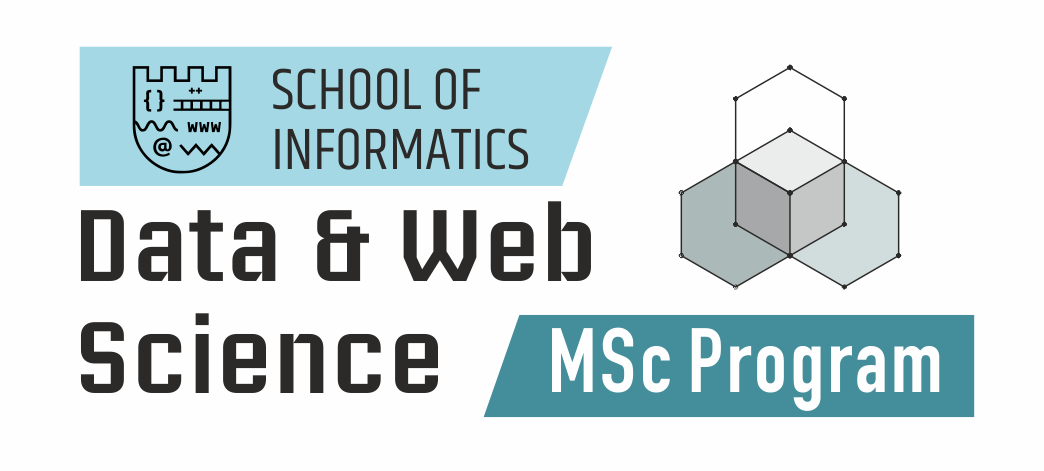 Please tell us in a few words what the Master’s programme in Data and Web Science is about?
Please tell us in a few words what the Master’s programme in Data and Web Science is about?
The MSc in Data and Web Science deals with the training and education of postgraduate students on the topics of Data Science and the World Wide Web. Our programme aims to teach both practical skills that are currently needed in the industry as well as theoretical knowledge to allow our students to pursue a career as researchers either in industry or in academia. Our MSc programme prepares students to work in several positions of high expertise, such as data scientists, data engineers, social Web analysts, blockchain engineers, and machine learning engineers. Our MSc has a strong emphasis on the topics of Big Data (courses: Distributed Data Processing, Technologies for Big Data Analytics, Mining from Massive Datasets), Machine Learning (courses: Machine Learning, Advanced Topics in Machine Learning, Natural Language Processing) and Web technologies (courses: Semantic Web, Web Data Mining, Decentralised Technologies, Social Network Analysis). Other courses include Statistical Data Analysis, Advanced Topics in Databases, Knowledge Graphs and Ontology Engineering, Managing and Mining Complex Networks, and Algorithmic Game Theory.
Given that the Programme is taught entirely in English, would you like to tell us why does this Master aim at attracting international students and which are the benefits for them?
The benefits for international students are: a) high quality training from professors who are internationally recognised experts in their fields, b) connection to an emerging local technological and entrepreneurial ecosystem that opens positions for our graduates, including among others the Pfizer Digital and Technology Hub, Cisco Digital Transformation and Digital Skills Centre, and the Deloitte Alexander Competence Center, c) a multi-disciplinary academic setting since Aristotle University is the largest in Greece with a coverage of all sciences and humanities, d) a friendly, multicultural, safe and affordable city to live in, with a vibrant community of more than 80,000 students. Note that when the audience consists of Greek students only, the lectures are given in Greek. However, all study materials and communications are in English.
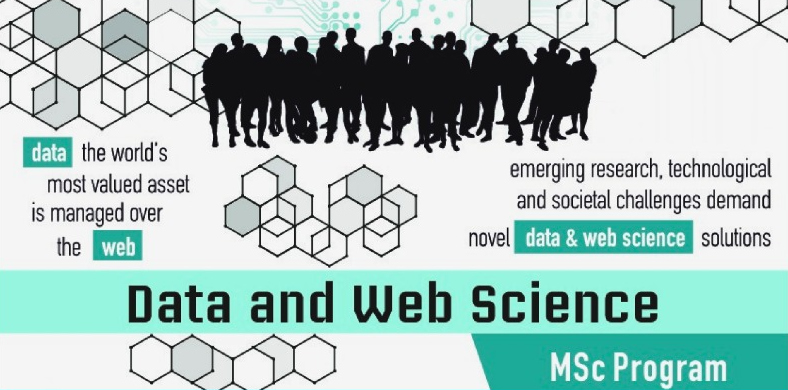 In your opinion, how easy is it for a Greek university to become a strong competitor at a global scale in the demanding and ever-evolving field of Informatics?
In your opinion, how easy is it for a Greek university to become a strong competitor at a global scale in the demanding and ever-evolving field of Informatics?
Becoming a strong competitor at a global scale in Computer Science and Engineering is not easy. It requires continuous effort on improving the quality of our research and teaching and establishing strong links with the industry, making sure our work has a broad impact on society, alongside with science and business. According to the rankings of Guide2Research, Aristotle University ranks 189 in the world in Computer Science, with 6 top scientists, 2 of which teach in our MSc. AUTH was ranked as one of the world’s top 350 universities in Computer Science and Information Systems by the QS company, and as one of the top 500 worldwide for Computer Science by Times Higher Education. The high quality research and the visibility of faculty members’ work as well as the active events which are held regularly in our MSc programme (industry/alumni talks) contribute in enhancing our MSc programme’s competitiveness.
Which has been the output of this Master’s degree so far? Is it satisfactory? Does it attract an substantial number of foreign students?
Our MSc degree has helped our students find (better) jobs in the industry. Some of our graduates managed to get their first job on the area of expertise of our MSc, while many others switched from more traditional jobs like software engineering to more exciting ones like data scientist, data engineer, Web analyst, and machine learning engineer. Several of our graduates are employed at industrial and innovation organisations, such as Pfizer and Deloitte. However, up to now, our MSc has not managed to attract high quality applications from foreign students. To address wider audience needs, our MSc programme is establishing a strong scholarship programme and has already initiated a strategic scholarship programme with DeepMind, a pioneering company in Artificial Intelligence and Data Science.
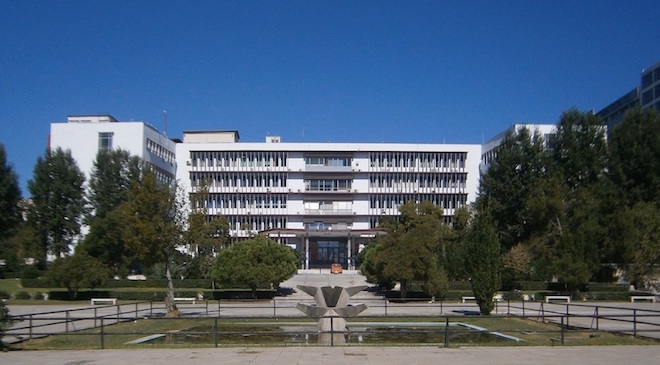 What does the beautiful and historic city of Thessaloniki have to offer to an international student?
What does the beautiful and historic city of Thessaloniki have to offer to an international student?
Thessaloniki is considered a popular and hospitable destination for international students. It is the second-largest city in Greece, the capital of the region of Central Macedonia, and one of the biggest educational hubs of South-eastern Europe, with 150.000 students each year at several universities, colleges, and research institutions. With a population of 1.3 million, it has kept its friendly and laid-back character, making it an ideal student destination, easy to settle in and get around. Situated in the Gulf of Thermaikos on the Aegean Sea, the city is well known for its natural beauty and unrivalled sea view. Thessaloniki has always been a diverse and multicultural city of international character, as a key crossroad between east and west. Whatever your style is, this city will charm you with its rich cultural life, its large number of monuments, its exquisite cuisine, the vivid nightlife, and beautiful surroundings.
Tell us a few things about the Aristotle University of Thessaloniki –one of the largest and most historic universities in Greece– concerning its efforts to adapt to the world of contemporary innovation and cutting-edge research.
Aristotle University is the largest university in the Balkans, with a key characteristic being its interdisciplinarity, as it features 11 schools and 40 departments covering the whole spectrum of arts, science, and technology. Aristotle University is well known for its cutting-edge research including classical studies, engineering, medicine and computer science. At the same time, it strives to transfer the knowledge and innovation that it produces to spin-off companies exploiting the rich research results of the university. There are more than 10 spin-offs currently established in the University, one of which involves a professor that is teaching in the MSc on Data and Web Science.
 Recent career surveys conducted both in Greece and abroad have shown that the sector of Informatics and its applications constitute one of the main focuses of employers’ search for skills. Do you think that Greek HE’s rationales align with this trend-imperative?
Recent career surveys conducted both in Greece and abroad have shown that the sector of Informatics and its applications constitute one of the main focuses of employers’ search for skills. Do you think that Greek HE’s rationales align with this trend-imperative?
The Greek Higher Education system produces a large number of graduates in the field of Informatics that help address the growing need for such skills in the market. All stakeholders must continue their efforts towards improving the quality of teaching and research in the Greek universities. Increasing the funding and/or concentrating the resources around hubs of excellence could be one rationale for improved results. Our MSc programme is supported by two very active research labs that participate in several European programmes relevant with competencies development in Big Data/AI/HPC such as AI4EU and EuroCC, aiming to systematically advance skills and to embark on EU and international efforts for skills ongoing advancement.
N.M.
TAGS: EDUCATION | STUDY IN GREECE

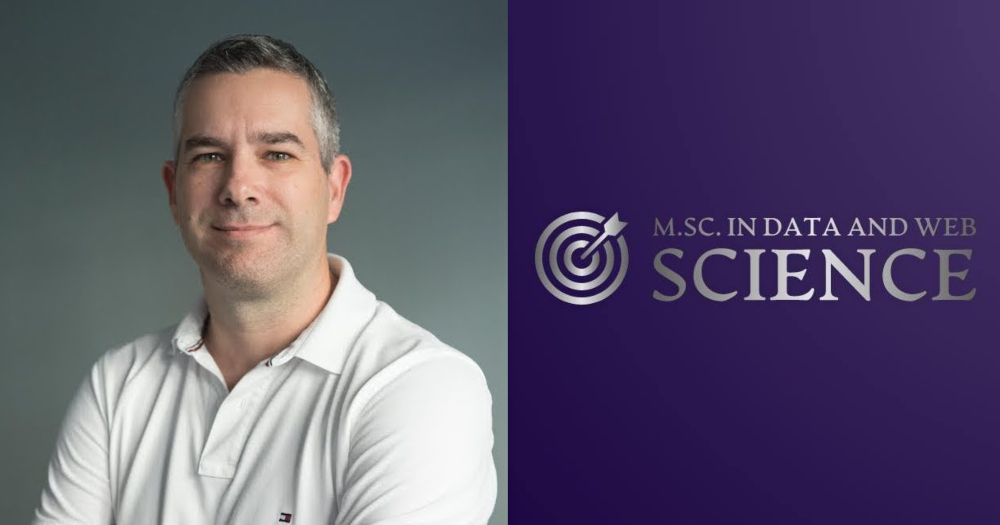

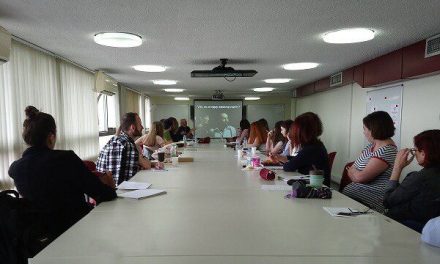


![Literary Magazine of the Month: [FRMK] and its Ten-Year Anniversary Issue ‘Tenderness-Care-Solidarity’](https://www.greeknewsagenda.gr/wp-content/uploads/sites/2/2024/04/frmkINTRO2-1-150x150.jpg)





